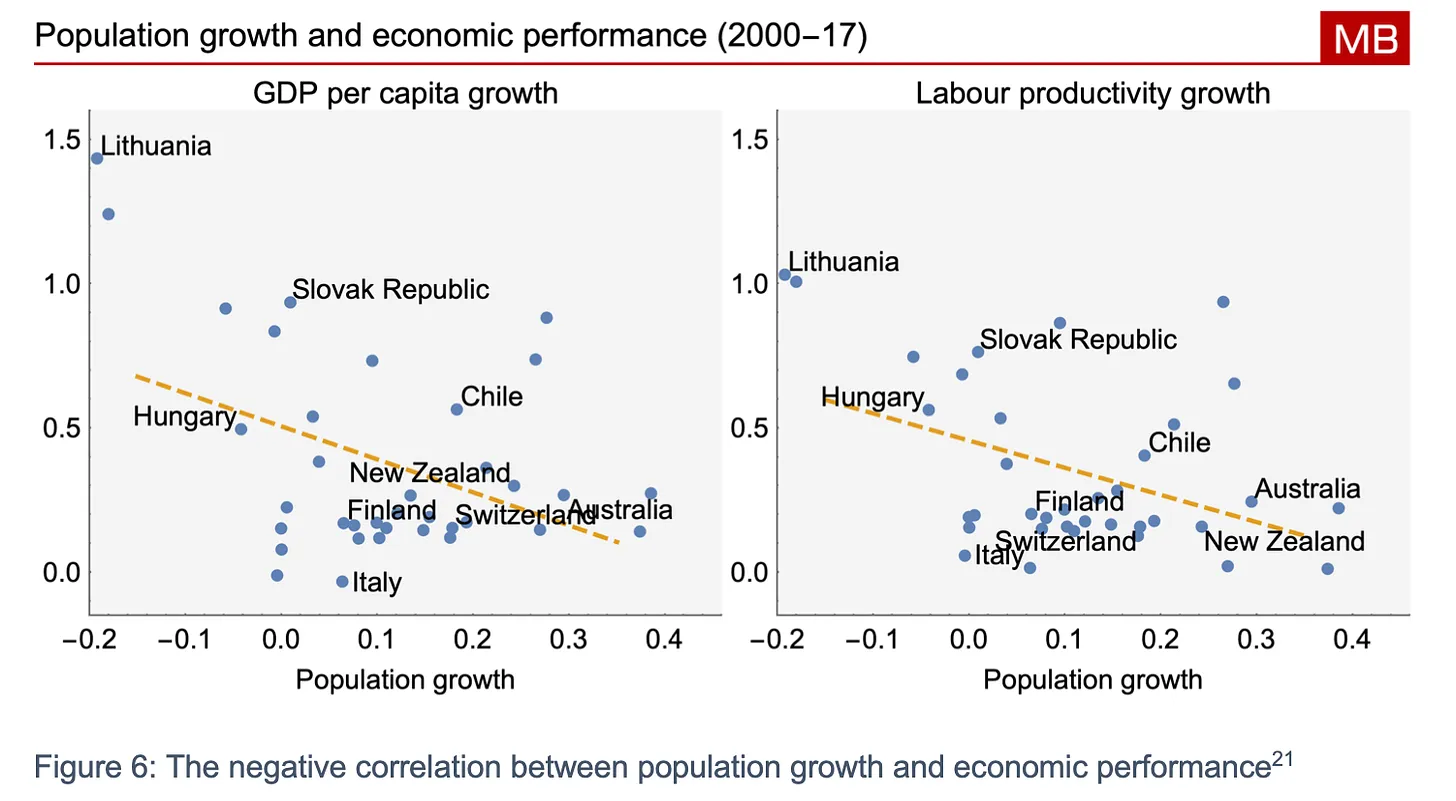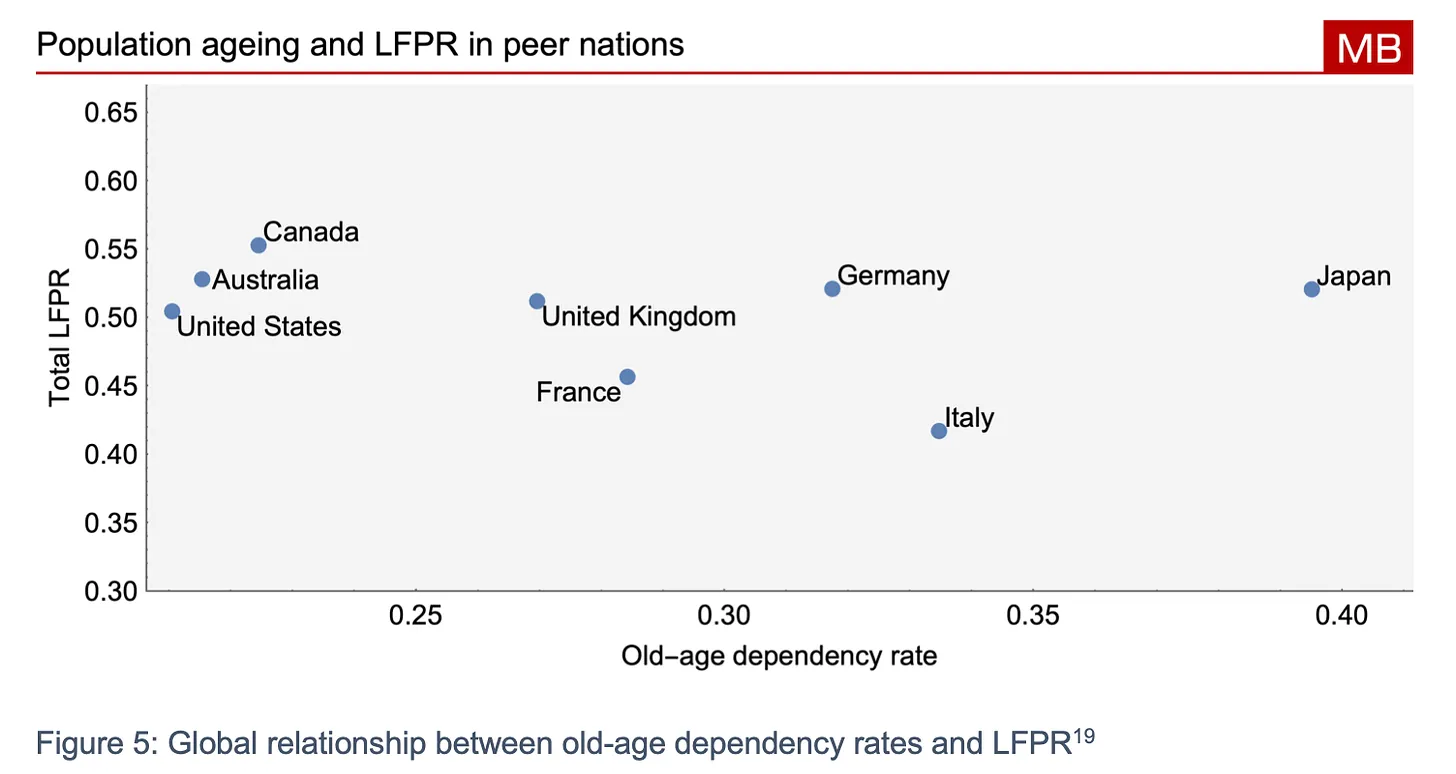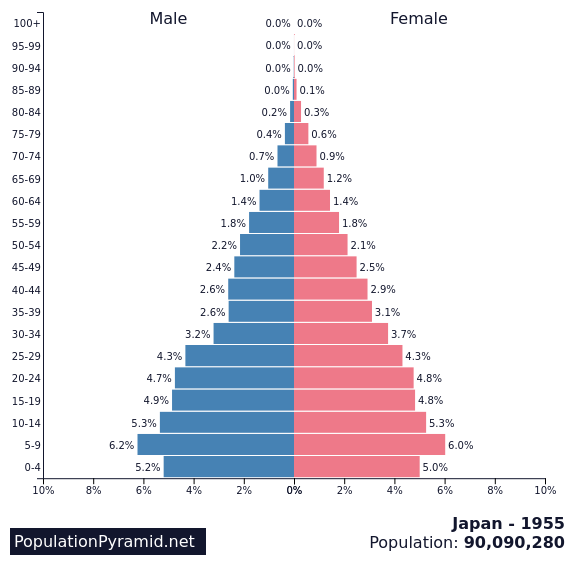@Bear Ribs , hm, maybe this is were the disconnect is: you see Japan for the last 30 years as some great disaster, while I don't really see it. I was in Japan in the 90s, admittedly very young, and it seems quite a nice place, and everything I see suggests its still a fairly nice place.
So, Japan looks to me to be a pretty successful country over my entire lifetime. More successful on many measures than the US, outside of purely economic measures. Japan reached a (fairly high) level of development, and didn't grow past it. If China reaches $40,000 per capita and levels out, that's a pretty successful country. Hell, if China reached $20,000 per capita and leveled out, it would be a fairly successful country.
Most developed countries, excluding microstates with weird quirks that aren't necessarily broadly applicable, and the United States, which also has some innate benefits as world hegemon, seem to have leveled out at roughly $30-40k per capita. Japan reached
$30k ish per capita in 1991 (2010 dollars for consistency) and then has had very slow growth.
Korea as an Asian comparison, as much as we think of it as a very developed rich country, only has a real gdp per capita of $33k. There technically about where Japan was 30 years ago, right before things started seriously slowing down.
England Reached $30k per capita in 1988, and did continue to have some good growth until about 2008 where it reached $44k and there hasn't really been consistent growth much beyond that: current GDP per capita is $45k, and had an earlier peak of $47k.
Germany reached $38k in 2008, and also hasn't grown immensely since then. There at about $43k per capita now. About 1% annual productivity growth.
America is a very special as a large country to have grown as much as it has despite its immense wealth. We got to $30k in 1977, far earlier than anyone else. Stagnant remaining 70s meant getting to the next $40k per capita took a while, till 1993, 16 years and an average growth of 1.8%, which is not terrible either. We then shot past that to $50k in 2003 in only 10 years, 2.26% growth rate. Then still continued to grow to $60k by 2019. Which for the US feels a bit like stagnation, being an average of 1.15% per year growth rate, which is way less than the 2% average we've had for the previous 25 years.
Still, America is very much an outlier: growing past $30-40k per capita (2010 dollars) seems to be quite difficult, especially on a broad scale. America on this quick survey seems unique as a large county to have achieved it, and its possible some level of that may be its position as the global hegemon.
Certainly many other large countries have done much worse.
Brazil had rapid growth until 1980, where things slowed at $6k. Didn't even break $10k per capita, which suggests to me industrialization stalled and likely failed. Growth there has been extremely slow, and is currently $9k per capita. Or, macroeconomically, roughly a 1.02% growth in overall labor efficiency for 40 years.
Russia collapsed from a USSR position of roughly $8k per capita, and over the last 30 years has grown to a roughly $10k per capita. Average growth of 0.75%. It so far has shown little sign of being able to grow much past the 8-10k level.
India has had some good growth in the last 30 years. Unfortunately, its from extremely low base of development: in 1990, gdp per capita of India was $530. Now, its about $2,000. Average of 4.5% productivity growth for 30 years! If they can keep it up for another 30-40 years they'll be able to achieve Russian levels of success.
As for the last BRIK
South America, well, it makes Brazil and Russia looks like economic paragons. Apartheid had a plateau in 1971 of roughly 5k, then things fall part in the 90s, and post integration you have a surging economy to . . . 6k. Over 50 years, an average per capita growth of 0.37%.
China to complete the data series really started growing in the 1990s, from a bit better place than India of $900 dollars. Now its about $10k. This is an average annual growth rate of 8.36%.
This already makes it more successful than any other large developing nation. Plateauing at $20,000 over the next 20 years (average growth slows to 4%) would still make it a very successful country. Especially if they could squeeze out another 20 years of growth at, say, 2% after that to get up to $30k per capita, I guess that would be roughly in 2060.
That would move into rough general parity with all its East Asian neighbors on overall development, but being 5-10x bigger. India if it can maintain current growth rates doesn't catch up to $30k for 65 years, or 2085, maintaining comfortable security. Vs the US if the US doesn't grow at all getting to $15k achieves GDP parity.
If the US can maintain 1% labor efficiency growth over the next 40 years, per capita rises to $90k. Population growth has also slowed as well, to roughly 0.5%, so 40 years of pop growth would see the US pop at about 400 million. For a combined GDP of $36 trillion. If the Chinese population has by that point declined to 1 billion, parity with America requires $36k.
If American productivity growth further slows to 0.5%, and population growth to roughly 0.25% over that 40 years, US per capita only grows to $73k, and overall population to 370 million, for a GDP of $27 trillion, so matching the US in raw GDP only requires a per capita GDP of 27k.
So, basically, China is already wildly successful on a developing nation metric breaking the 10k barrier, will achieve good success if it can break 20k, making it quite peer with its fellow East Asians, Japan and south Koreans sized areas as developed if not better than its piers, if they don't already have them, as well as being fantastically rich compared to all its non-east Asians neighbors. $30k would be an immense success, pushing it over its east Asians neighbors and putting on par with many current Europeans countries and directly comparable to the US on a dollar for dollar comparison.
And thats a big info dump and I need to do some other stuff.







